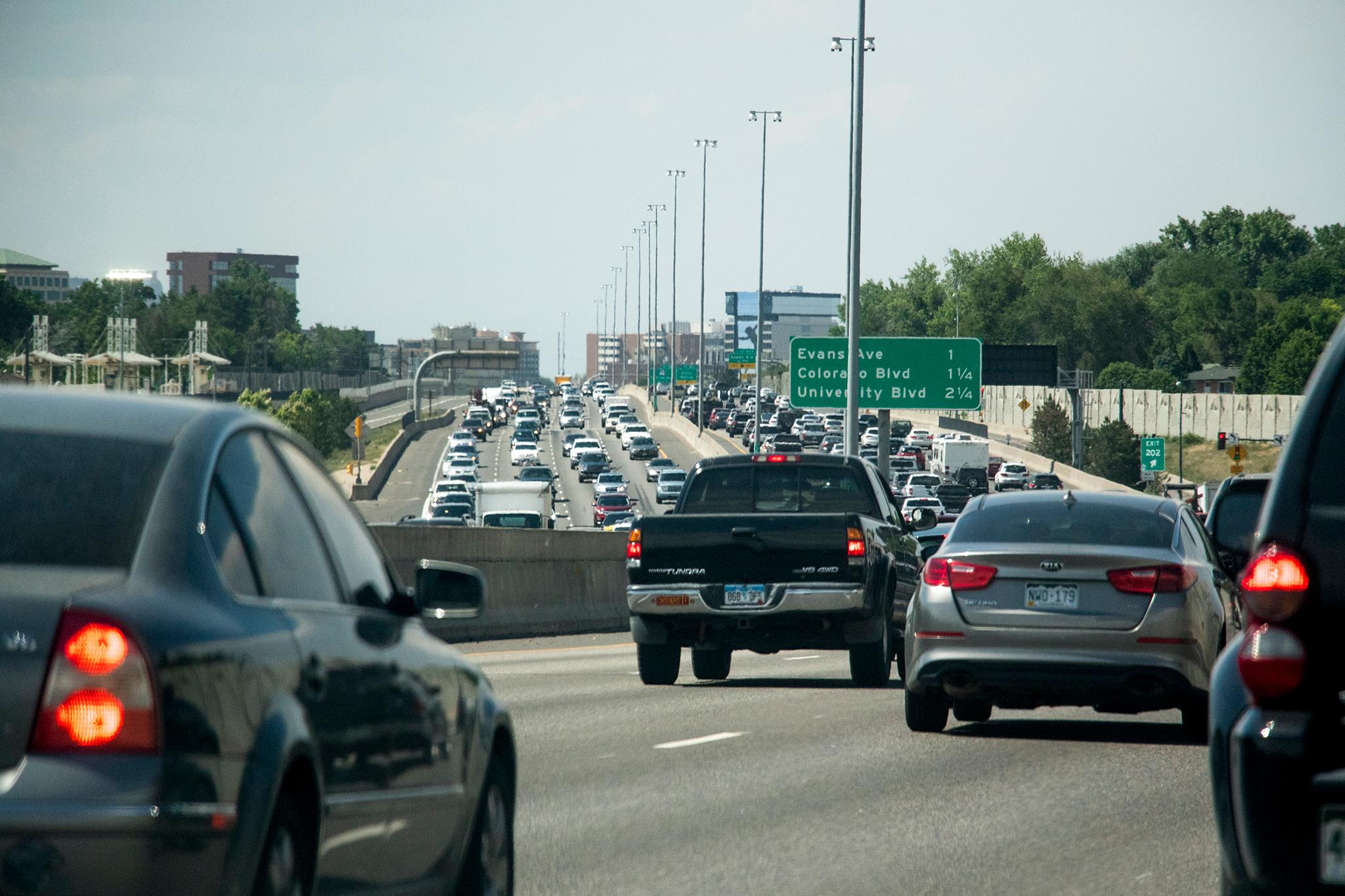
The Trump administration announced a rollback of fuel efficiency standards last week for how much gas cars and trucks use.
Instead of the Obama-era goal of nearly 55 miles per gallon by 2025, the Trump administration will bring that down to 40 miles per gallon.
It was a big blow for Colorado, where transportation is the largest contributor of greenhouse gases in the state.
“It just doesn’t make sense from a cost perspective, from a health perspective, from an environmental perspective. It’s the wrong way to go,” said Danny Katz, state director of the Colorado Public Interest Research Group. “And it just costs more at the pump. You just literally have to pay more for every mile that you’re driving.”
Colorado technically has its own state law on the books promoting efficiency, and it wasn’t relying on the federal standard. Known as the low-emission vehicle standard, the state passed the law in 2018 partly in anticipation of the federal rollback of the Obama-era standard. But the Trump administration rescinded the ability of states to have standards stricter than the federal government, which launched a lawsuit that Colorado joined onto.
Now Colorado Attorney General Phil Weiser has signaled he’ll join with other states in suing the federal government over the single federal standard.
So what happens in Colorado as the lawsuits play out?
“We’re disappointed, but we’re prepared to move on,” said John Putnam, director of environmental programs at the Colorado Department of Public Health and Environment.
While lawsuits move through the courts, Putnam said Colorado will continue to work toward achieving its low-emission vehicle standards, which apply for 2022 model year cars.
Part of the motivation stems from Colorado’s ambitious climate goals it’s required to meet under HB 1261, which includes a short-term goal of reducing greenhouse gases 50 percent by 2030. Putnam said having strict vehicle standards is “critical” for meeting these goals. But he’s hopeful progress can continue to be made regardless of whether the state wins the lawsuits.
“It’s important to know that the rollback that the Trump administration put forward lasts out to 2025. So what happens after 2025 will be particularly important,” Putnam said.
That could mean that Colorado works with other states like California to adopt stricter standards after 2025. Meantime, states like California are working with automakers that have signaled interest in voluntarily pursuing fuel efficiency goals. California has a special waiver to pursue standards that are stricter than federal ones under the Clean Air Act.
The picture all adds up to uncertainty for the car industry. Colorado Auto Dealers Association President Tim Jackson said car sales are already slowed down under COVID-19. The lawsuits add more uncertainty fuel to the fire.
“It’s in a state of flux, and it’s going to continue that way unless or until there’s a settlement in court, or a national standard that we can all get back to,” Jackson said.
Jackson favored the Trump administration policy because he thinks stricter fuel efficiency standards would make the cost of vehicles more expensive. But more importantly, he wanted certainty for his industry.
Now, that’s something many car dealers won’t see any time soon.








